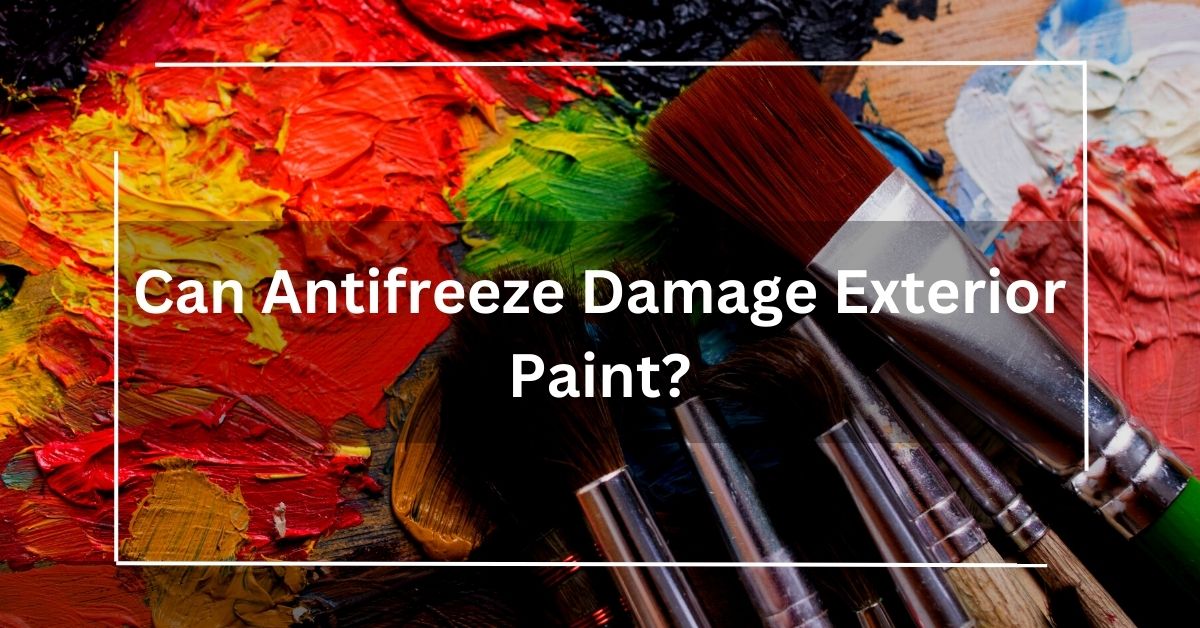In the world of car care and maintenance, various chemicals and products can have both positive and negative effects on vehicles. Many car enthusiasts and owners are concerned about whether antifreeze can harm their vehicle’s exterior paint.
yes, antifreeze has the potential to damage your vehicle’s paint due to the corrosive nature of chemicals like ethylene glycol and propylene glycol. However, you can protect your paint through proactive cooling system maintenance, immediate spill cleanup, and the use of protective measures.
This article provides a comprehensive exploration of antifreeze’s impact on exterior paint and offers essential guidance to ensure your vehicle always looks its best.
Understanding Antifreeze
Before delving into the possible impact of antifreeze on your vehicle’s exterior paint, let’s first understand what antifreeze is and its primary purpose.
Antifreeze, also known as engine coolant, is a vital component of your vehicle’s cooling system. It plays a crucial role in preventing the engine from overheating, especially in extreme temperatures.
Antifreeze is typically a mixture of water and ethylene glycol or propylene glycol, and it is responsible for maintaining the optimal operating temperature of your engine.
The Composition of Antifreeze
As mentioned earlier, antifreeze contains various components, with the most common being ethylene glycol or propylene glycol. These compounds are used to lower the freezing point of the coolant, ensuring that it remains a liquid even in cold weather.
Additionally, they elevate the boiling point of the coolant, preventing it from evaporating at high temperatures. This mixture, when added to water, forms the antifreeze solution that circulates through your vehicle’s engine.
Antifreeze and Exterior Paint
Now, let’s address the primary question: Can antifreeze damage the exterior paint of your vehicle? The short answer is yes, it can.
However, this damage is typically not a direct result of the antifreeze itself, but rather the ethylene glycol or propylene glycol it contains. These chemicals can be harmful to your car’s paint if they come into contact with it.
When antifreeze leaks or spills onto your vehicle’s exterior, it can cause harm in several ways:
1. Paint Discoloration
Antifreeze can lead to paint discoloration, especially if it contains a high concentration of ethylene glycol. This chemical can strip the protective wax layer from the paint, making it more vulnerable to environmental factors like sunlight, rain, and pollutants. Over time, this can result in faded or discolored paint.
2. Corrosion
The ethylene glycol in antifreeze is known to be corrosive. When it contacts your vehicle’s paint, it can slowly eat away at the protective clear coat and, eventually, the underlying paint layers. This can lead to the formation of unsightly blemishes and rust spots on the surface of your vehicle.
3. Peeling and Blistering
Prolonged exposure to antifreeze can also cause the paint to peel or blister. The corrosive nature of the chemicals in antifreeze can weaken the adhesive properties of the paint, resulting in imperfections that detract from your vehicle’s appearance.
Preventing Antifreeze Damage
To protect your vehicle’s exterior paint from the potential harm caused by antifreeze, consider the following preventive measures:
1. Maintain Your Cooling System
Regularly inspect your vehicle’s cooling system for leaks or issues that may lead to antifreeze spills. Address any problems promptly to prevent leaks and protect your paint.
2. Clean Spills Immediately
If you do encounter an antifreeze spill on your vehicle, clean it up as soon as possible. Use a clean cloth or paper towel to wipe away the antifreeze and wash the affected area with water to minimize potential damage.
3. Apply Paint Protection
Consider applying a high-quality paint protection product to your vehicle’s exterior. These products create a barrier that shields your paint from various environmental contaminants, including antifreeze.
In Conclusion
In conclusion, antifreeze can indeed damage the exterior paint of your vehicle, primarily due to the corrosive properties of the chemicals it contains, such as ethylene glycol and propylene glycol. To safeguard your car’s paint, it’s crucial to be proactive in maintaining your cooling system, addressing spills promptly, and applying protective measures.
By following these recommendations, you can ensure that your vehicle maintains its aesthetic appeal and remains in top condition. Remember that while antifreeze is essential for your engine’s well-being, it’s equally important to protect your vehicle’s exterior from potential harm.
